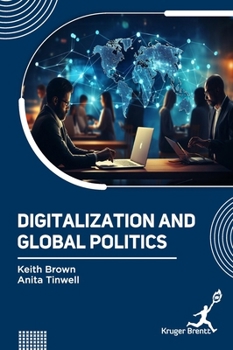Digitalization and Global Politics
Impact of Digital Technologies on Political Processes: Explore how digital technologies, including social media, artificial intelligence, and big data, are transforming political processes, including campaigning, voter outreach, public opinion shaping, and policymaking on a global scale.
Cybersecurity and Global Governance: Examine the importance of cybersecurity in global politics, including the challenges of cyber threats, cyber warfare, and state-sponsored hacking. Discuss international efforts for establishing norms, regulations, and cooperation in cyberspace security.
Social Media and Public Discourse: Analyze the role of social media platforms in shaping public discourse and political activism, discussing both their potential for mobilizing social movements and the challenges of misinformation, polarization, and echo chambers.
Digital Diplomacy and International Relations: Discuss the emergence of digital diplomacy as states and organizations increasingly engage through online platforms. Explore how digital channels facilitate diplomatic communication, crisis management, and influence international relations.
Artificial Intelligence in Political Decision-Making: Explore how AI is applied in political decision-making processes, including data analysis for public policy, predictive modeling for elections, and the ethical concerns related to automation in governance and citizen surveillance.
Digital Inequality and Global Power Dynamics: Address how digital divides affect global power dynamics, highlighting disparities in technology access and digital literacy among nations. Discuss the implications for developing countries and the ways digitalization is reshaping geopolitical influence and economic power.





